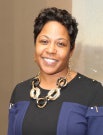 Johari Shuck
Johari Shuck
According to recent reports, Black athletes, including the majority of the 2004-05 National Championship team, made up a significant proportion of enrollees in Department of African, African American, and Diaspora Studies “paper classes” that never met, for the purpose of boosting GPAs to meet NCAA academic eligibility standards.
As a doctoral student and educator at a Big Ten university, I am appalled at the academic negligence that Black student athletes have endured for almost 20 years at UNC and the lack of responsibility the coach and institution have taken for the wrongdoing. One problem I have with this case is the mockery that has been made of the legacy of Black faculty and students at UNC that began over 45 years ago to improve the educational environment for Black students at UNC. In 1968, a group of students, the Black Student Movement (BSM), confronted school officials with a list of demands addressing the factors that contributed to hostile learning and campus environments; one of the demands was the establishment of an African and African American studies major and department.
Bill Chamberlain, a member of the UNC basketball team and BSM, represented some of the concerns of the Black athletes and exerted his influence as a star player (along with the first Black scholarship athlete, Charlie Scott) to help convince then-chancellor J. Carlyle Sitterson to give in to the BSM demands. One BSM student account claimed Sitterson’s decision to meet student demands “left white conservatives angered and white liberals supporting but afraid of more than mere talk.” The following month, students who were peacefully demonstrating on campus were beaten and shot at with rifles by campus police.
This context cannot be ignored in the present UNC case, because it reveals the origins of an ingrained culture that has failed to genuinely protect and address the needs of Black students and contributes to academic injury through unconscious, rather than overt, racism.
Today, at UNC, Black men are more heavily represented on football and basketball teams (69.9 percent) than they are in the general student population (3.5 percent); university officials have made no indication that they know or care any more about the needs of Black students than they did 45 years ago. The larger problem exposed by the mess at UNC then becomes the blatant example of academic racism, which was first articulated by legal scholar Timothy Davis.
Davis claimed that the college athletic machine inflicts educational, social, economic and psychological damage on Black athletes. His suggestion that academic and developmental injuries disproportionately afflict Black student athletes cannot continue to be ignored by parents and student-athletes themselves, if their goal is to use sports to earn a college degree. Despite popular belief, the majority of Black college athletes expect to earn their college degrees rather than pursue professional careers in sports. However, precollege experiences, coupled with characteristics of their chosen school, can present unique obstacles to that goal.
Widespread stereotypic beliefs about the intellectual inferiority of Black male students have haunted countless Black male students throughout their academic careers. In the UNC case, these beliefs are made evident in practices to steer certain Black male students towards less rigorous majors. Athletic support personnel justified these enrollments because the students were “at risk.” As someone who has taught and advised college student-athletes, I believe that anyone who is truly invested in supporting a student would never promote academic laziness, as enrollment in these paper classes did.
Parents of student-athletes should beware of schools and coaches who claim to have their children’s academic best interests in mind or go as far as to say that they will make sure their children will receive a degree. Hold them accountable. There is much more to the college experience than what takes place in the classroom. Students need to develop critical-thinking skills through rigorous courses, gain experience doing community service, and acquire interpersonal and leadership skills through membership student organizations. These students become well prepared for life after college. Without such engagement, the value of degrees in these majors is limited. But student athletes are not always afforded these opportunities for engagement, which can have a crippling effect after sports.
Colleges and universities have reaped countless benefits as they’ve built elite athletic programs on the physical talents of Black athletes that are often miseducated. UNC’s failure to accept responsibility for academic neglect of numerous Black student athletes is reprehensible. But UNC is not alone. There are countless cases where Black student-athletes are being clustered in certain majors such as general studies, communications and Black studies, without extracurricular supplements to teach them skills and competencies they need to be competitive in today’s job market outside of sport.
As Chamberlain did 45 years ago, two former UNC athletes are using their visibility to draw attention to present day exploitation of Black athletes at UNC. In June, Rashad McCants boldly opened up about his academic experiences at UNC; Michael McAdoo has brought a potentially historic lawsuit against the university, which suggests that academic and developmental injuries can be as detrimental to the life trajectories of these athletes as a concussion.





















